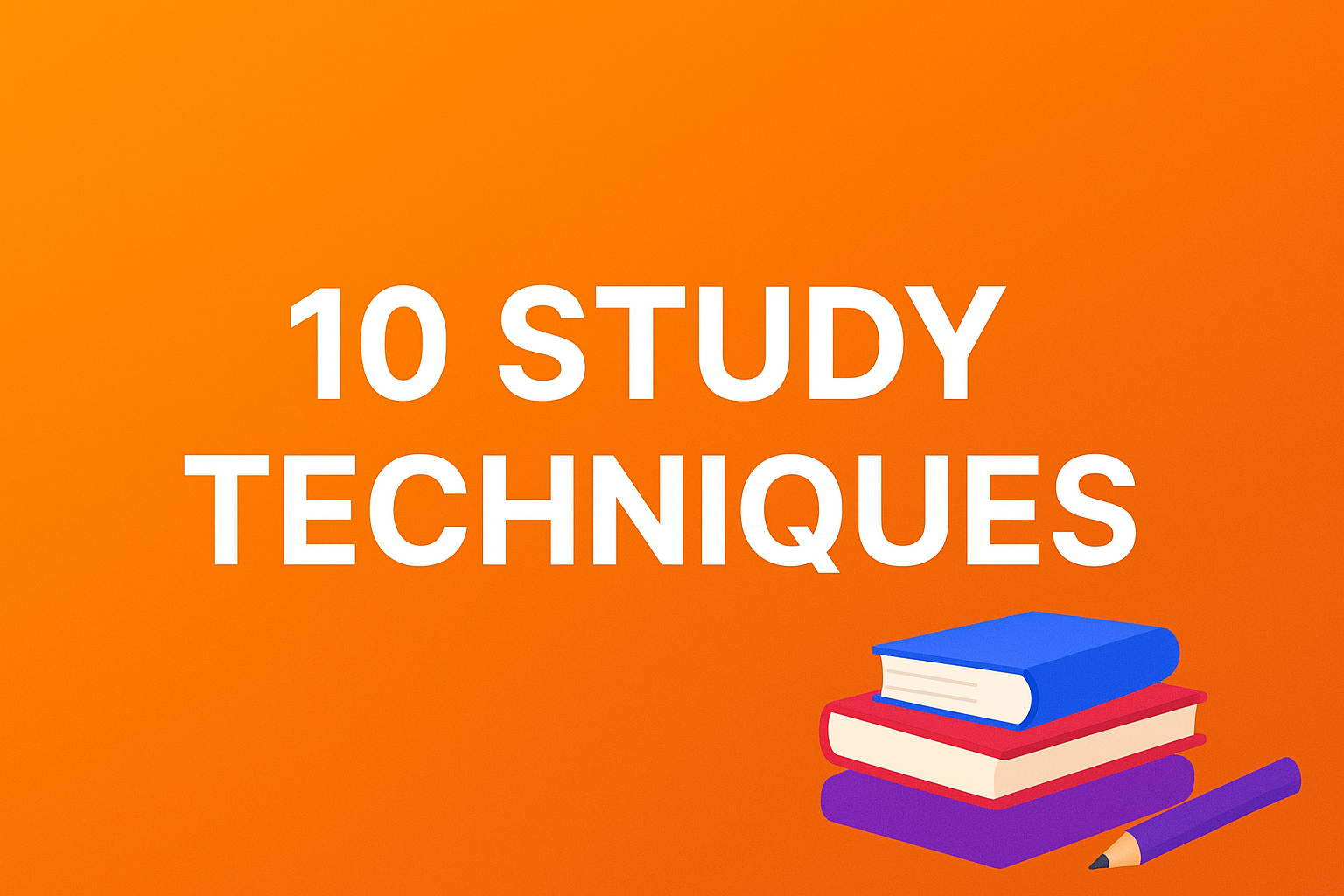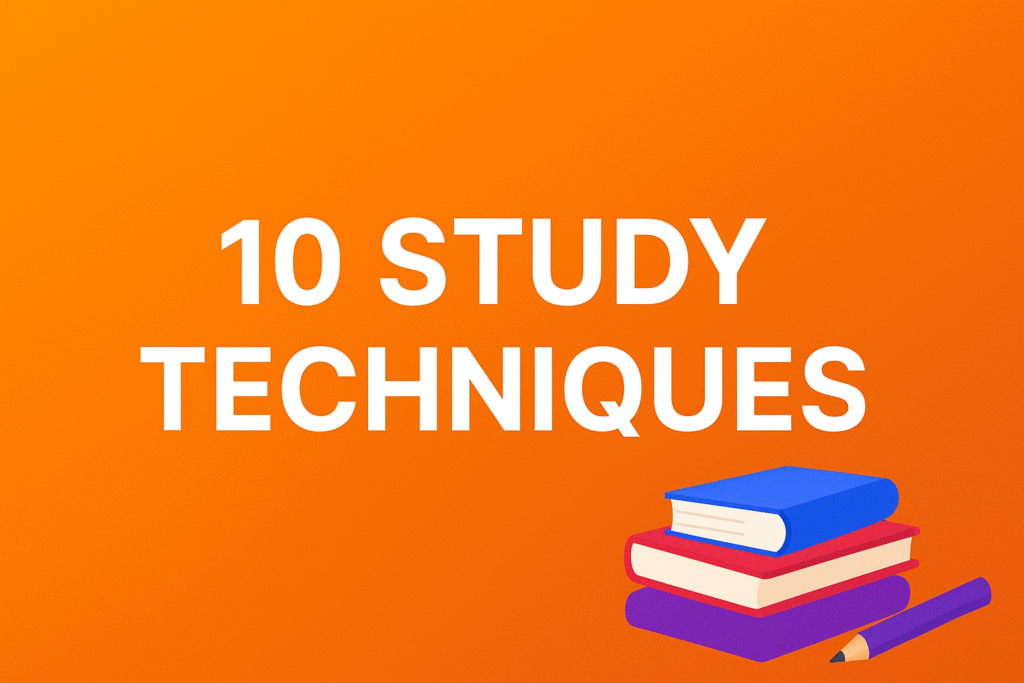Physical Address
304 North Cardinal St.
Dorchester Center, MA 02124
Physical Address
304 North Cardinal St.
Dorchester Center, MA 02124
“Yojana, News, Sarkari Updates & Study Tips”
“Yojana, News, Sarkari Updates & Study Tips”

Exams can be stressful, but the right study techniques can make all the difference. Whether you’re preparing for school tests, college exams, or competitive government exams, these methods will help you learn faster, remember more, and reduce stress.
Here are 10 proven study techniques for exams you can start using today.

The Pomodoro Technique is a time-management method where you:
Why it works: Short bursts of focus help you stay energized and avoid burnout.
Instead of just reading notes, try quizzing yourself.
Why it works: Your brain learns better by recalling information rather than just re-reading.
Create a diagram with the main topic in the center and subtopics branching out.
Example: If you’re studying “Human Body,” branch into Digestive System, Respiratory System, etc.
Why it works: Visual learning helps you understand connections between topics.
Why it works: If you can explain it simply, you truly understand it.
Why it works: Revisiting information at intervals strengthens memory.
Explain the topic to a friend, sibling, or even to yourself in front of a mirror.
Why it works: Teaching forces you to organize your thoughts and remember details.
Break study material into small, manageable sections instead of cramming everything at once.
Why it works: Smaller study sessions reduce fatigue and improve focus.
Practice with previous exam papers or mock tests.
Why it works: Helps you understand the exam pattern and improves time management.
Why it works: Fewer distractions = better concentration.
Your brain works best when your body is healthy.
Don’t just work hard — work smart. Pick 2–3 of these study techniques for exams, apply them consistently, and you’ll notice a big difference in your performance.